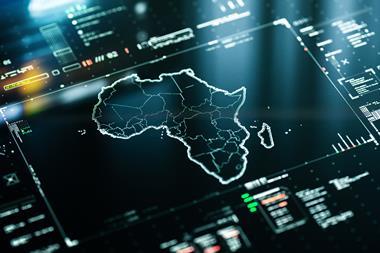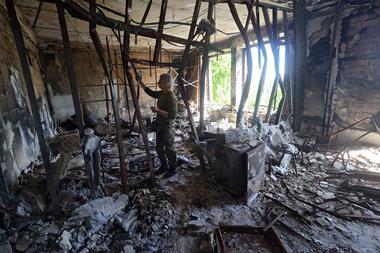As the impacts of global crises such as war and natural disasters are felt around the world, a new report from the International Science Council (ISC) says that the scientific community should be better prepared to safeguard science and scientists in such challenging situations.
‘Critically, the report comes at a time when schools, universities, research centres and hospitals, all places which promote the advancement of education and scientific research, have been destroyed or damaged [in places like] Ukraine, Sudan and Gaza,’ says Peter Gluckman, President of the ISC, an international non-governmental organisation involving 250 scientific unions, associations, and research councils.
The report stresses the need for a unified strategy that not only reacts to crises but anticipates and prepares for them. It details options for more effective multilateral policies as well as actions that science institutions, governments, academies, foundations and the broader scientific community can start collaborating on immediately. These include fostering relationships between scientists from different nations and improving relationships with news media as well as advocating for ‘a more robust scientific voice’ in the world.
In the immediate aftermath of a disaster it is difficult to have inclusive, comprehensive and reasoned discussions
Sayaka Oki, University of Tokyo
One of the main themes to emerge from the report is the science sector’s lack of reflection on past crises. Learning from the past is key to future resilience, the report says. Such lessons include defining immediate needs when a crisis or disaster hits, maintaining collaboration across borders and addressing misinformation. The paper looks at lessons from crises such as the Russian invasion of Ukraine, the Cape Town University library fire in 2021 and the Fukushima nuclear disaster of 2011; and examples of ‘crisis recovery’ such as the war in the Balkans (1991–1999) and Japan after World War Two.
‘In the immediate aftermath of a disaster it is difficult to have inclusive, comprehensive and reasoned discussions, so we had a real dilemma,’ says Sayaka Oki from the University of Tokyo Graduate School of Education, a report contributor who was present for the Fukushima earthquake and subsequent tsunami. ‘A democratic society should have free discussion but, in reality, especially for several days after an incident, it can be really difficult to have considered and consistent messaging. So that is when a single voice is needed, but at the same time, it needs to be transparent and clear.’
Crisis management
The report’s framework for crisis management has three strands: prevention, protection and rebuilding. Its key recommendations include enhancing resilience by developing systemic responses that use global expertise to minimise the impact of crises; educating scientists and leaders in crisis and risk management, and fostering trust between science and society; improving mechanisms for collaboration and information sharing to protect researchers and scientific assets during crises; and encouraging rebuilding efforts to prioritise science, higher education, and technological innovation in post-crisis recovery.
In times of crisis, the public need to have access to sound evidence and to trust that evidence
Tracey Brown, Sense about Science
Stephen Wordsworth, chief executive of the charity Council for At-Risk Academics (Cara), welcomes these proposals. ‘It is vitally important to have experienced organisations and well-established processes in place, so we can respond quickly when a crisis hits. 2022-23 was an exceptionally demanding year for [Cara], dominated by the effects of the crises in Afghanistan, Ukraine and Sudan, but by the end of 2023, with the support of our long-established network of 135 UK university and research institute partners, some 175 threatened academics were safe and in placements.’
‘Decision-makers should follow the report’s recommendations,’ urges Stuart Parkinson, Executive Director of Scientists for Global Responsibility which promotes ethical science and technology. ‘The report provides some timely analysis of the neglected issue of protecting scientists and scientific infrastructure during times of crisis.’
Tracey Brown, Director of the charity Sense about Science, which aims to raise the standard of evidence in public life, welcomes the report’s call for a better relationship between science and society. ‘[This is] is important and is improved when scientists show their understanding of the context in which decisions are being made, and acknowledge the trade-offs that people are faced with in daily life. In times of crisis, the public need to have access to sound evidence and to trust that evidence, so they can make the best decisions for their situation.’












No comments yet